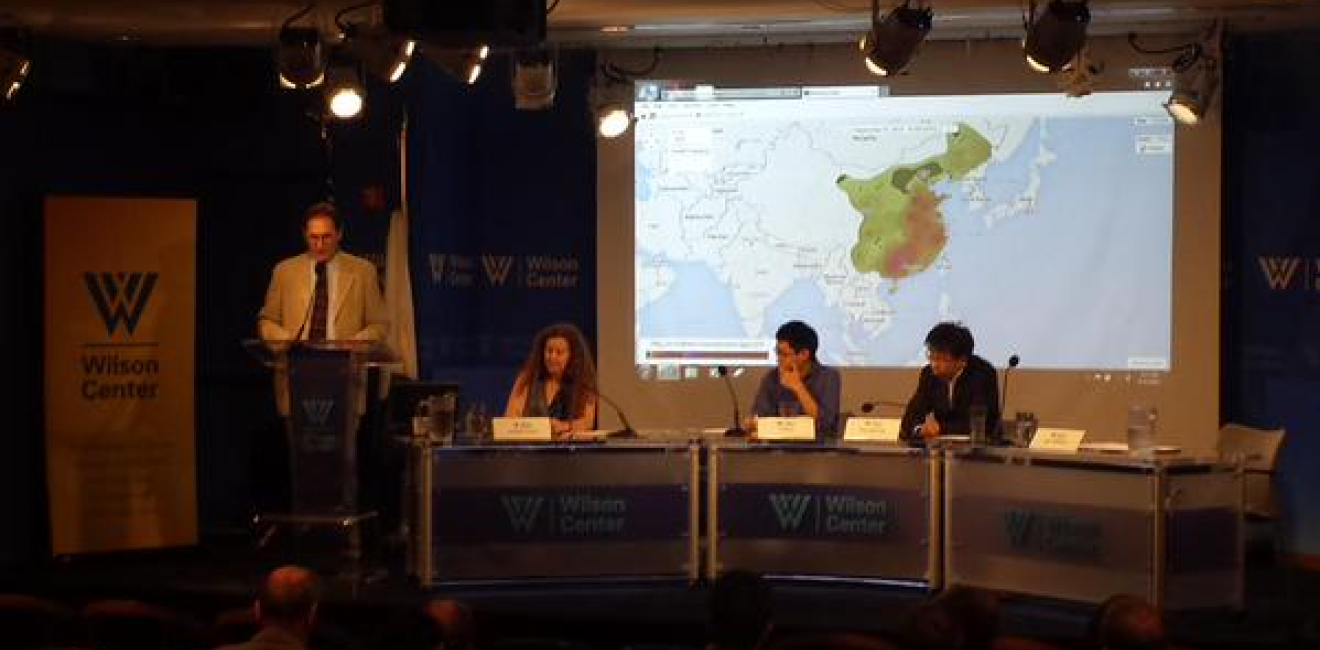China is entering a new era of energy and environmental laws aimed at clearing the air while ratcheting down carbon pollution, experts said yesterday.
Speaking at the Woodrow Wilson International Center for Scholars, policy analysts and environmental activists working on Chinese energy issues praised a new air pollution law aimed at restricting various forms of smog. But, they argued, while China is increasingly serious about tackling the twin challenges of climate change and air pollution, the government needs still more tools to restrict the growth of coal.
"We are winning a few battles but not the war," said Li Shuo, a senior climate policy officer with Greenpeace East Asia.
He noted that Beijing's notoriously thick air pollution has been improving, driven in large part by an economic restructuring as well as a continuous decline in coal consumption that started last year. But he also said 83 percent of cities in China still are not meeting national air pollution standards.
And, Li said, the new law does not include a cap on coal -- a last-minute change by legislators that he called "unfortunate." He said air pollution will improve because of the new law, but only incrementally.
"Ultimately, the environmental governance will need to catch up. We cannot only rely on economic downturn to clean up the air," he said. "We need much more weapons in our arsenal, which include the air pollution law, but also other things, as well."
The law, amendments to which were approved in August by members of China's Standing Committee of the National People's Congress, calls for a gasoline quality standard as well as restrictions for major pollutants, according to Xinhua, China's state-run news agency. Under it, the state will have a system to punish pollution offenders.
A recent study by the nonprofit group Berkeley Earth found that air pollution is killing 4,000 people a day in China. In examining data from sensors around the country, the group found that a buildup of fine particulate matter known as PM2.5 is exposing more than 80 percent of China's population to unsafe levels of pollution. The result: about 1.6 million deaths a year from asthma, heart attacks and other ailments linked to heavy smog.
"The air law should not be viewed in isolation," said Steve Wolfson, a senior attorney with U.S. EPA's Office of General Counsel. He said it builds on other environmental moves from China's 12th five-year plan, including a planned extension of coal caps, provisions on emissions from shipping pollution and pilot carbon-trading programs.
"The job is not done, by a long shot," Wolfson said. But, he added, "China is in the process of significantly improving its environmental protection system."
(Photo Credit: China Environment Forum, Wilson Center)






